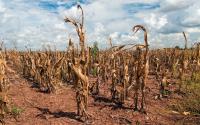17 January 2006Guardian
Sometimes I envy the self-belief of the Daily Mail's columnist Melanie Phillips. When Andrew Wakefield, a researcher at the Royal Free Hospital, suggested that there might be a link between autism and the MMR injection, she decided he was right. Despite the failure of further studies to find any evidence, despite the fact that Wakefield's co-researchers have dissociated themselves from his allegation, and though the medical profession, almost without exception, is persuaded that his claim has no merit, she persists. The epidemiologists are guilty of "category confusion"; the scientific reviewers are throwing up "clouds of obfuscation"; her critics are peddlers of "ignorance, misrepresentation and smear".
She's just as sure of her position on climate change. Last year she told listeners to the Moral Maze that manmade climate change "is a massive scam based on flawed computer modelling, bad science and an anti-western ideology ... a pack of lies and propaganda". Soon afterwards, the Royal Society published a "guide to facts and fictions about climate change", whose purpose was to address the arguments made by people like her. It destroyed all the claims she had been making. A few months later, the deniers' last argument fell away, as three studies showed that satellite data suggesting the atmosphere had cooled were faulty. New Scientist reported that "as nails in the coffin go, they don't get much bigger".
But nothing can stop her. Last week she resumed the attack. Manmade climate change is "one of the greatest scientific scams of the modern age", an artefact of "ideology, irrationality and pseudoscientific sloppiness". "The rate of warming over the past century," she claimed, "is nothing out of the historical ordinary." We also learnt that "most of [the atmosphere] consists of water vapour": the climatologists must have been lying about that too.
As usual, the scientists have the science wrong, and only Phillips, autodidact professor of epidemiology, gastroenterology, meteorology and atmospheric physics, can put them right. Where does she get it from? How do you acquire such confidence in your own rectitude that neither the evidence itself, nor the Royal Society, nor the combined weight of the major scientific journals can alter by a whisker the line you have taken? Are you born knowing you have prophetic powers: that everything you believe is and will forever be true? Or does it come with experience? If so, what might that experience be?
The occasion for her latest outburst was a study published last week in Nature, which showed, to everyone's astonishment, that plants produce methane, a greenhouse gas. Phillips used the findings to suggest that the entire science of global warming had been disproved and that there was no need to worry about the biosphere. Nature came to the opposite conclusion: as methane emissions from plants rise with temperature, climate change will cause further climate change.
But while this study does nothing to threaten global warming theory, there is something it challenges. It should shake our confidence in one of our favourite means of tackling it: paying other people to clear up the mess we've made.
Both through the unofficial carbon market and by means of a provision of the Kyoto protocol called the "clean development mechanism", people, companies and states can claim to reduce their emissions by investing in carbon friendly projects in poorer countries. Among other schemes, you can earn carbon credits by paying people to plant trees. As the trees grow, they are supposed to absorb the carbon we release when we burn fossil fuels.
Despite the new findings, it still seems fair to say that forests are a net carbon sink, taking in more greenhouse gases than they release. If they are felled, the carbon in the trees and the soil they grow on is likely to enter the atmosphere. So preserving them remains a good idea, for this and other reasons. But what the new study provides is yet more evidence that the accountancy behind many of the "carbon offset" schemes is flawed.
While they have a pretty good idea of how much carbon our factories and planes and cars are releasing, scientists are much less certain about the amount of carbon tree-planting will absorb. When you drain or clear the soil to plant trees, for example, you are likely to release some carbon, but it is hard to tell how much. Planting trees in one place might stunt trees elsewhere, as they could dry up a river that was feeding a forest downstream. Or by protecting your forest against loggers, you might be driving them into another forest. As global temperatures rise, trees in many places will begin to die back, releasing the carbon they contain. Forest fires could wipe them out completely. The timing is also critical: emissions saved today are far more valuable, in terms of reducing climate change, than emissions saved in 10 years' time, yet the trees you plant start absorbing carbon long after your factories released it. All this made the figures speculative, but the new findings, with their massive uncertainty range (plants, the researchers say, produce somewhere between 10% and 30% of the planet's methane) make an honest sum impossible.
In other words, you cannot reasonably claim to have swapped the carbon stored in oil or coal for carbon absorbed by trees. Mineral carbon, while it remains in the ground, is stable and quantifiable. Biological carbon is labile and uncertain.
To add to the confusion, to show that you are really reducing atmospheric carbon by planting or protecting a forest, you must demonstrate that if you hadn't done it something else would have happened. Not only is this very difficult to do, it is also an invitation for a country or a company to threaten an increase in emissions. It can then present the alternative (doing what it would have done anyway) as an improvement on its destructive plans, and claim the difference as a carbon reduction.
There's a good example in Brazil. A company in the state of Minas Gerais runs a big eucalyptus plantation, which it uses to produce charcoal for smelting pig iron. Many of the locals hate it, because it grabbed their land and has replaced the diverse forest and savannah that sustained them with a monoculture. Now it claims that it should be paid by rich nations to maintain its plantations because otherwise the companies it supplies would switch to coal. The locals allege that the company had no intention of abandoning its trees until it saw the potential of the carbon market. They also say it will be rewarded for keeping the rightful owners off their land.
But perhaps the most destructive effect of the carbon offset trade is that it allows us to believe we can carry on polluting. The government can keep building roads and airports and we can keep flying to Thailand for our holidays, as long as we purchase absolution by giving a few quid to a tree-planting company. How do you quantify complacency? How do you know that the behaviour the trade induces does not cancel out the carbon it sequesters?
In other words I think it is fair to say that a scam is being perpetrated, but not of the kind Melanie Phillips alleges. We know that climate change will impoverish many people. We now know that it will make others very rich - but their money-making schemes will have precious little to do with saving the planet.www.monbiot.com






